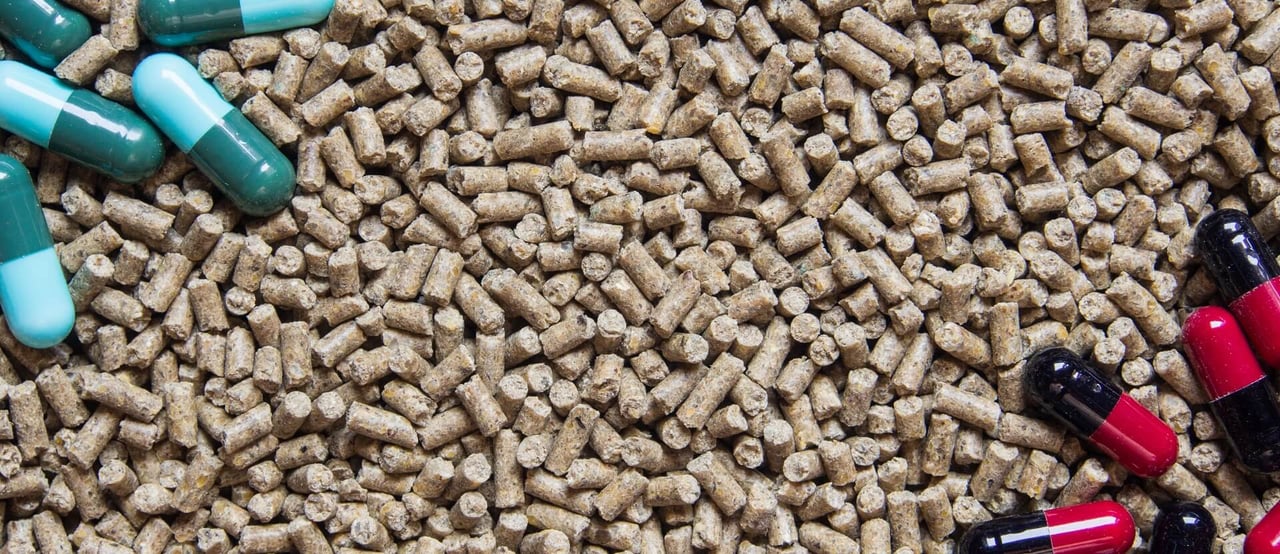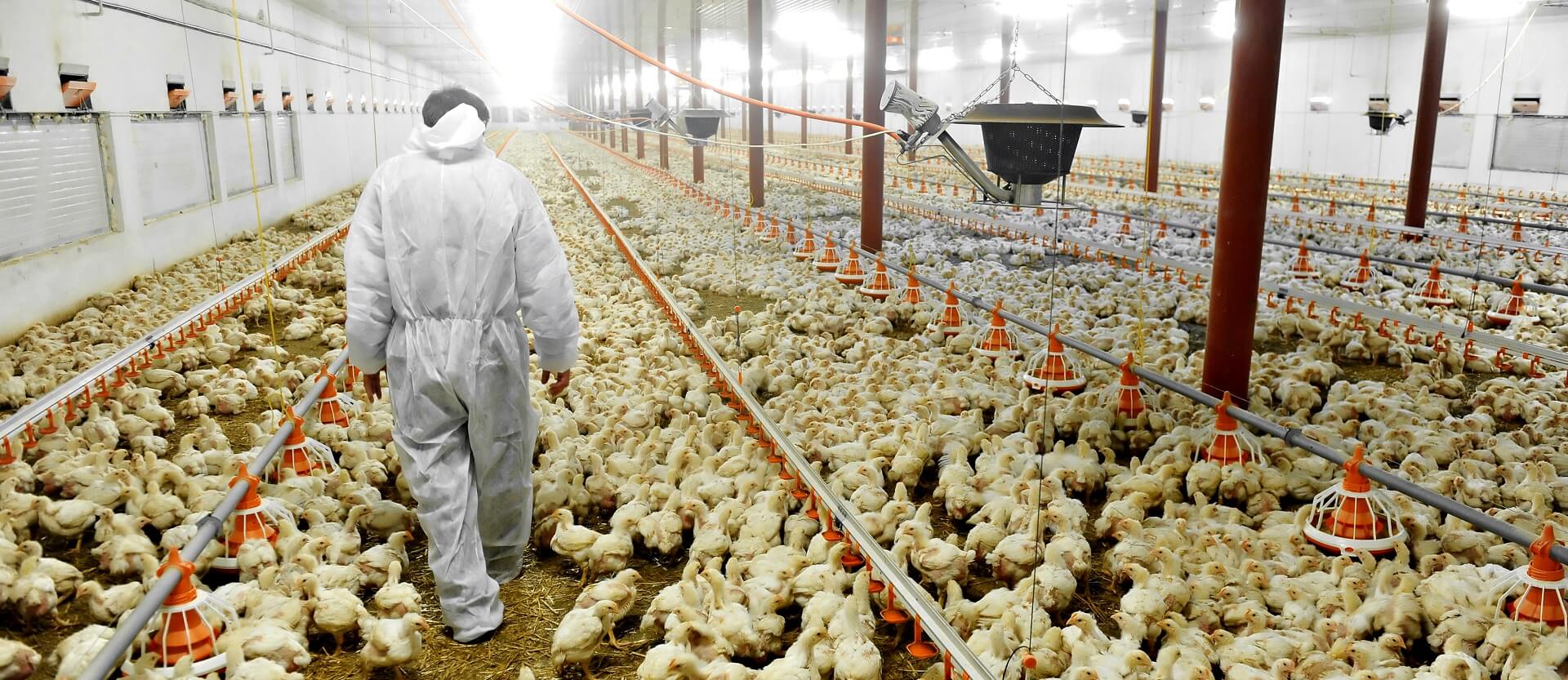Fuelling the pandemic crisis
Read our 'Fuelling the Pandemic Crisis' report and learn about factory farming and the rise of superbugs.

It is estimated that 131,000 tonnes of these antibiotics are used on stressed farm animals to cover up for not providing them with sufficient nutrition, proper care, and space to move around – which are basic needs of every living being.
Such excessive use of antibiotics on factory farms is contributing to the rise of superbugs. Superbugs are bacteria that are resistant to the antibiotics used to treat them. It is predicted that by 2050, superbugs will be responsible for more than 10 million deaths a year.
With your support, we’re calling for Governments to ban the use of antibiotics for the routine prevention of disease. Antibiotics should be reserved for use when there is a recognised illness in an animal or in a group of animals.

Animals stuck on factory farms around the world are often kept in poor, low welfare conditions. They are typically overcrowded, with no space to display their normal behaviours. As a result, these stressed animals are more likely to fall ill. In order to prevent sickness in these poor conditions, antibiotics are often used preventatively to reduce disease risk.
Such overuse can contribute to the rapid rise and spread of bacteria that are resistant to medicines used to fight infections. These resistant bacteria or ‘superbugs’ are carried off farms via water, air, workers, insects, wildlife, and meat, where they may eventually reach humans. Superbugs are bacteria that are resistant to the medicines that cure life-threatening illnesses.
According to the World Health Organization (WHO), superbugs were responsible for 1.27 million deaths in 2019 due to antibiotics no longer being effective.
The low-welfare conditions that contribute to the rise to superbugs can also cause diseases like bird flu or swine flu to emerge from factory farms and transfer to humans. Keeping large numbers of genetically similar animals in tightly packed conditions can increase the risk of disease spread and mutation. One day this could even lead to the next global pandemic.
This is why the transition to eating less meat and a high-welfare global food system is vital, and putting an end to low-welfare factory farms is needed.
Read our 'Fuelling the Pandemic Crisis' report and learn about factory farming and the rise of superbugs.

Join thousands of animal lovers fighting to protect wildlife and give farmed animals good lives. Sign up now to receive emails with all the ways you can help.
Sign up